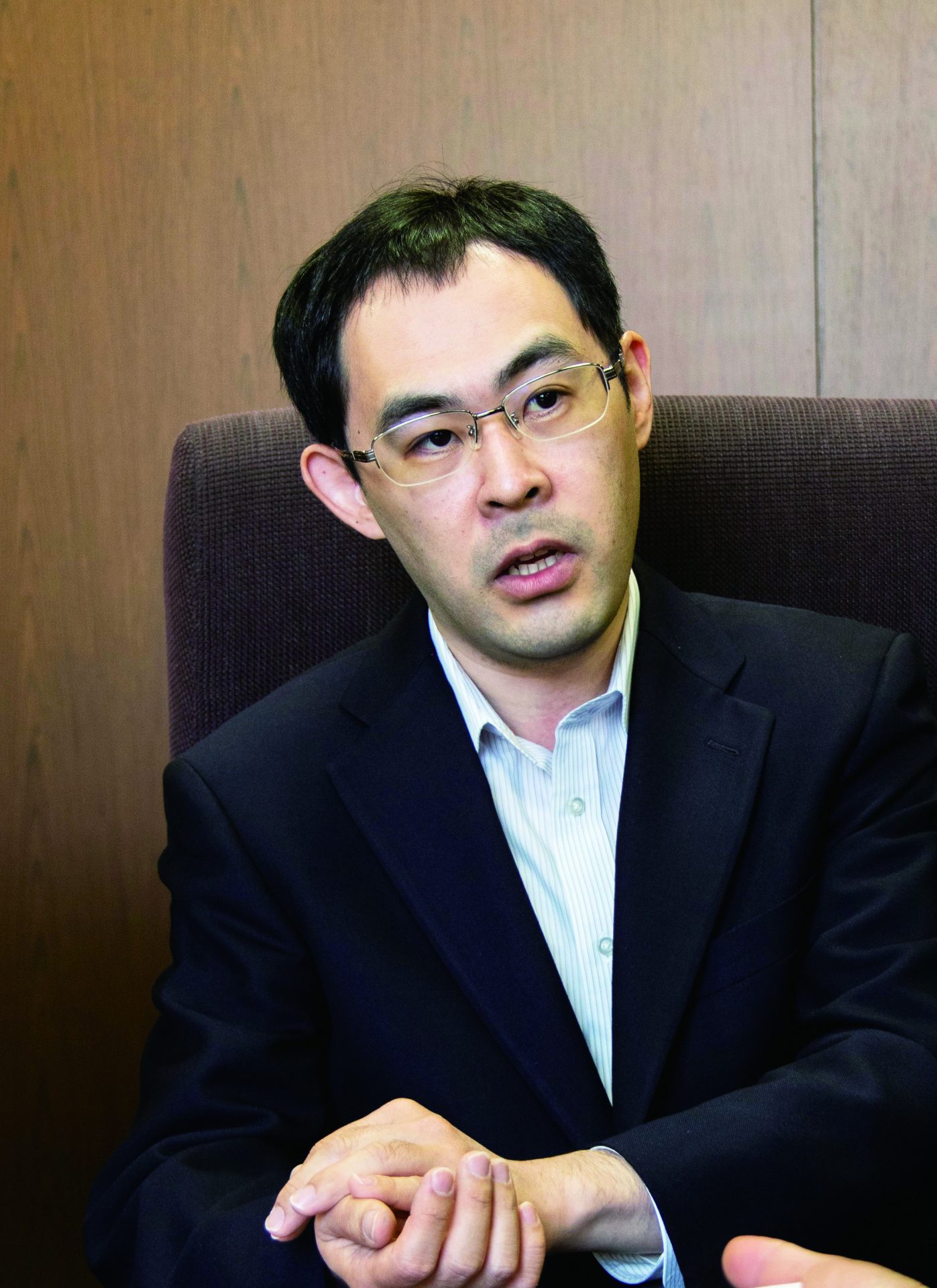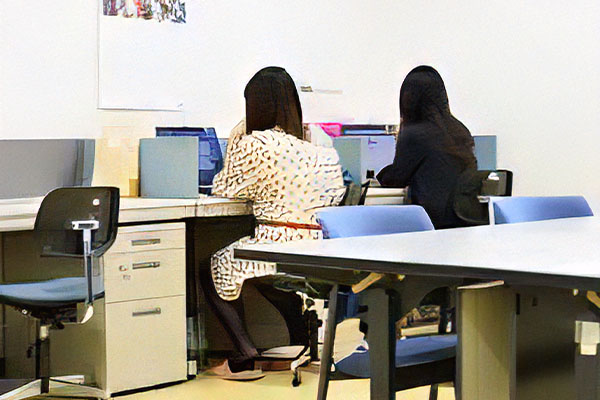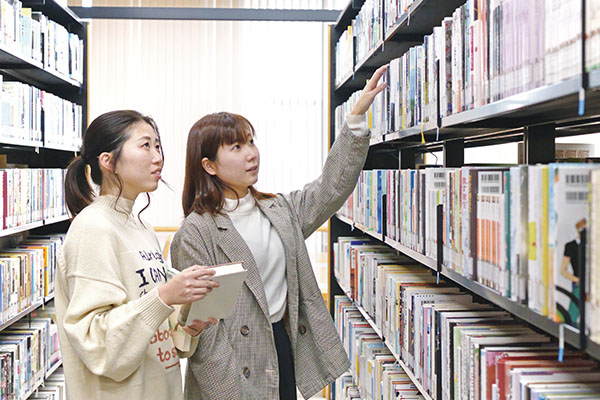- Home
- Undergraduate / Department / Graduate School
- Graduate School
- Graduate Graduate School of Economics (Master's Program)
Graduate School
Graduate Graduate School of Economics (Master's Program)
We will reduce the financial burden on motivated students and support learning.
Graduate School
Full tuition exemption system
※After enrollment, the tuition fee reduction application procedure is applied, and if certain conditions are met, it will be applied.

Economics and Business Administration
An open graduate school that responds to the tide of a new era
Until now, in addition to new university graduates, we have accepted and sent a variety of members, including active working adults, retired workers, and international students from Korea and China, mainly in the Shimonoseki area. The characteristics of this Graduate School are limited to a small number of students. We have established an environment where graduate students can exchange opinions based on their knowledge and experience and stimulate each other, as well as a friendly support system such as lectures and research guidance held day and night by professors.
We also provide research guidance and classes at night, Saturday, and holidays, which are easy for active working students to learn. By combining intensive lectures during closed periods (summer and winter), we will organize a timetable that allows you to acquire the necessary credits.
I look forward to the challenge of everyone who is trying to advance their careers at this Graduate School.
Course system
About Early Courses
The Graduate School Early Course System is a system in which students can take classes at Shimonoseki City University Graduate School Graduate School of Economics while studying for 4 years. You can take up to 20 graduate school credits in the fourth year of undergraduate course. The credits earned under this system may be included in the credits required for completion of the Graduate School of the University, up to the number of credits determined by President, only when enrolled in the Graduate School of the University.
| 1st year | 2nd year | 3rd year | 4th year | Graduate School |
|---|---|---|---|---|
| First-year undergraduate students | 2nd grade undergraduate | 3rd grade undergraduate | 4th grade undergraduate → Graduated from Faculty | |
| Early course of graduate school |
Qualifications
Those who fall under all of the following 1 to 3
①Those who are enrolled in the year of graduation from Faculty of Economics at the time of enrollment
②Those who wish to enter the Graduate School of Tokyo University
③Those who are recognized by the Graduate School Management Council as having excellent academic performance
About the Long-Term Course System
The long-term course system is a system in which members of society can learn at graduate school while balancing work and family, and aim to obtain a degree. If you fall under any of the following 1 to 3 and it is difficult to study in the standard period of study (2 years), you can use the long-term course system. You can plan your course at your own pace and gain a deep understanding and practical knowledge, making it ideal for those who aim to improve their career and improve their expertise. The application is at the time of application, and the long-term course period of 3 or 4 years is selected.
Qualifications
①Persons who have occupations and work (including those other than regular employees, who mainly live their income)
②Persons with circumstances such as childcare and long-term care
③President recognizes that it is difficult to study in the standard term of study due to illness or other unavoidable circumstances.
The total amount of tuition fees and insurance premiums when using the long-term course system is as follows. (Unit: yen)
| 1st year | 2nd year | 3rd year | 4th year | Total | Student Education Research Accident Insurance Premium | Gakken-related liability insurance premiums | |
|---|---|---|---|---|---|---|---|
| In normal cases | 535,800 | 535,800 | 1,071,600 | 1,400 | 680 | ||
| In the case of long-term course of three years | 357,200 | 357,200 | 357,200 | 1,071,600 | 2,100 | 1,020 | |
| 4-year long-term course | 267,900 | 267,900 | 267,900 | 267,900 | 1,071,600 | 2,650 | 1,360 |
Courses and research/education
Area Common Courses
| Special Economics I and II | I will explain the major trend of economics while taking into account the problems facing modern economy. |
| Problem Research I and II | Establish research themes related to social issues, conduct research appropriately, and complete the paper. |
Economic Community Systems and International Business Concentration Courses
| Microeconomic Research I and II | Research on the theoretical model of microeconomics and its analysis |
| Economic fundamental research I and II | Marx, Economics of Capitalism, especially the study of financial crisis and depression. |
| Gold-melting Economic Research I and II | Research on finance and corporate finance (corporate finance) |
| Industrial Organization Research I and II | Theoretical and empirical research of industrial organizations |
| Community Studies I and II | Research on community development related to industry-public-private collaborative society |
| Regional Policy Research I and II | Research on industrial location and regional policy |
| Urban Policy Research I and II | Research on issues in Japanese cities and policies aimed at solving them. |
| Business Administration Research I and II | Research on the theory and the formation of ideas in business administration |
| Management Accounting Research I and II | Systematic research on the current status and issues of management accounting methods |
| Accounting Research I and II | Theoretical study of Japan's accounting system in globalization |
| Marketing Research I and II | Research on marketing and international marketing of Japanese companies |
| Management Information Systems Research I and II | Research on the application of knowledge engineering in management information systems |
| International Economic Research I and II | Research on the International Economy, East Asia Economic Integration and Labor Movement |
Department of Education and Economics
| Special Lectures on Education Economics I and II | We will elucidate policies and issues related to education using theoretical and analytical methods that have been confirmed to be useful in economics. |
| Analysis of Economic Issues in Education I and II | We will discuss the formation of human capital, which is an important issue in the modern economy, from the viewpoint of economic theory and policy. |
| Social Science Research Methodology | Explains how to conduct research in the social sciences and how to write papers. |
| Measurement and quantitative methodology | We explain statistical methods for implementing educational and research issues. |
| Social Data Analysis (Infant Education) Special arguments I and II |
We will discuss evidence-based childcare practices and data analysis methods in the field of infant education. |
| Social Data Analysis (Organizational Management) Special Discussions I and II |
Research on data manipulation and analysis skills based on evidence on human resource management |
| Understanding of research ethics | Research on the significance and importance of research ethics, fairness, and misconduct as basic matters of research ethics |
A person in charge may be added. Please contact us for more information.
Introduction of Courses
Special Economics I
In Special Economics I, we will explain the major flow of economics in order to understand the basics and history of economics. In addition, in order to study economics, it is important to be interested in the major economic challenges of modern society. Therefore, in order to raise awareness of problems in the modern economy, we will discuss exciting topics such as population decline and the development of high-quality human resources, investment in human capital, technological innovation, economic growth and financial crises, fiscal and financial policy responses, and growth and stagnation of capitalism.

Message from the President of the Graduate School
Professor Shunsuke Adachi
ADACHI Shunsuke
In a modern society where the birthrate and aging population are aging and globalization are progressing, there is an urgent need to develop advanced professional professionals with specialized knowledge. Graduate Graduate School of Economics has two areas: economic community system, international business, and educational economics. In addition to developing practical human resources in both areas, we are developing graduate education that meets the needs of diverse lifestyles and learning under the early course system, long-term course system, and graduate tuition fee exemption system.
Research facilities

Graduate Lecture Rooms, etc.
On the 3rd floor of Building II, there are a lecture room for graduate schools, an exercise room, and a joint laboratory for about 10 people each. Each room is equipped with desks, computers, lockers, tables, etc. In this space, students can engage in individual learning and research, and can also be used to rest between research and classes, and to interact with other students.

Library of Shimonoseki City University
Located in Library and Study Center Building, Library of Shimonoseki City University has approximately 250,000 books and other specialized magazines and materials can be used. The opening hours are as follows, and it is also available for graduate school night classes.







